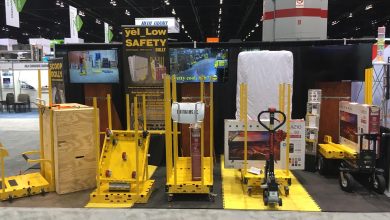Industrial fans are indispensable to modern manufacturing facilities, warehouses, and commercial spaces, providing essential ventilation, cooling, and air circulation. From maintaining optimal working conditions to safeguarding equipment and processes, industrial fans play a crucial role in enhancing productivity, safety, and comfort across various industries. In this article, we explore the diverse applications, types, and benefits of industrial fans, as well as the latest innovations shaping the industry.
Applications of Industrial Fans
- Ventilation: Industrial fans remove stale air, fumes, and contaminants from enclosed spaces, ensuring adequate airflow and ventilation. They are vital for maintaining indoor air quality and compliance with occupational health and safety regulations in factories, warehouses, and production facilities.
- Cooling: In hot and humid environments, industrial fans help regulate temperature by creating airflow that aids in evaporation and heat dissipation. They are commonly used in cooling towers, HVAC systems, and outdoor work areas to prevent overheating and improve worker comfort.
- Air Circulation: Industrial fans facilitate the even distribution of air within large spaces, preventing stratification and reducing hot spots. This promotes uniform temperatures and humidity levels, optimizing conditions for drying, curing, and material storage.
- Dust and Particle Control: Fans equipped with filtration systems capture airborne dust, particles, and contaminants generated during industrial processes. By removing pollutants from the air, these fans mitigate health risks and maintain cleanliness in work environments.
Types of Industrial Fans
- Axial Fans: Axial fans move air parallel to the fan blade axis, making them suitable for applications requiring high airflow rates at low pressures. They are commonly used for general ventilation, cooling large spaces, and air circulation in duct systems.
- Centrifugal Fans: Centrifugal fans generate airflow by radiating air from the fan wheel. They are more efficient than axial fans at generating static pressure, making them ideal for applications with resistance to airflow, such as ducted systems, air filtration, and HVAC systems.
- Blower Fans: Blower fans are a type of centrifugal fan designed to deliver high-pressure airflow at relatively low flow rates. They are commonly used in industrial processes requiring forced air circulation, pneumatic conveying, and drying operations.
- High-temperature Fans: Industrial fans are designed to withstand high temperatures in industrial ovens, kilns, and furnaces. They are constructed with heat-resistant materials and specialized components to ensure reliable performance in extreme conditions.
Benefits of Industrial Fans
- Improved Air Quality: By circulating fresh air and removing airborne contaminants, industrial fans contribute to a healthier and safer work environment, reducing the risk of respiratory problems and workplace accidents.
- Energy Efficiency: Modern industrial fans are engineered for efficiency, utilizing advanced motor designs, aerodynamics, and control systems to minimize energy consumption and operating costs.
- Enhanced Productivity: Optimal ventilation and thermal comfort provided by industrial fans create conducive working conditions, improving employee morale, focus, and productivity.
- Equipment Protection: Proper airflow and cooling provided by industrial fans help prevent overheating and extend the lifespan of machinery, electronics, and industrial equipment, reducing downtime and maintenance costs.
Innovations and Trends
- Energy-Efficient Designs: Manufacturers are developing energy-efficient fan designs using aerodynamic optimization, variable speed drives, and intelligent control systems to reduce energy consumption and environmental impact.
- Integrated IoT and Automation: Industrial fans are equipped with IoT sensors and connectivity features for remote monitoring, predictive maintenance, and optimising performance and energy efficiency.
- Noise Reduction: Innovations in fan blade design, motor technology, and vibration damping techniques aim to reduce noise levels, making industrial fans quieter and more conducive to workplace environments.
- Customization and Modularity: Manufacturers are offering customizable fan solutions tailored to specific applications and requirements, as well as modular designs that allow for easy installation, maintenance, and scalability.
Conclusion
Fans are essential for industrial infrastructure, providing ventilation, cooling, and air systems to enhance productivity, safety, and comfort. With advancements in technology and design, modern industrial fans offer energy-efficient performance, intelligent controls, and customization options to meet the diverse needs of industrial applications. As industries continue to evolve, the role of industrial fans in ensuring optimal working conditions and operational efficiency will remain indispensable.





